DP大学预科课程(G11-12)
SGA的国际文凭大学预科项目
国际文凭大学预科项目(DP)是为16至19岁的学生设计的广泛且严谨的课程体系,旨在为学生在海外大学的成功学习以及未来的职业生涯和生活奠定基础。IB文凭被全球大学广泛认可。相比其他的中学课程体系,DP项目为学生和家庭提供了更广泛的选择和机会。在SGA,我们会帮助每位学生找到最适合他们的大学和职业发展路径,为离开中学后的生活做好准备。
在11年级和12年级的两年中,IBDP考生需要学习六个课程,涵盖五到六个学科组,并完成IBDP核心课程。
- 第一组:语言A
- 第二组:语言B*
- 第三组:人文科学
- 第四组:科学
- 第五组:数学
- 第六组:艺术^
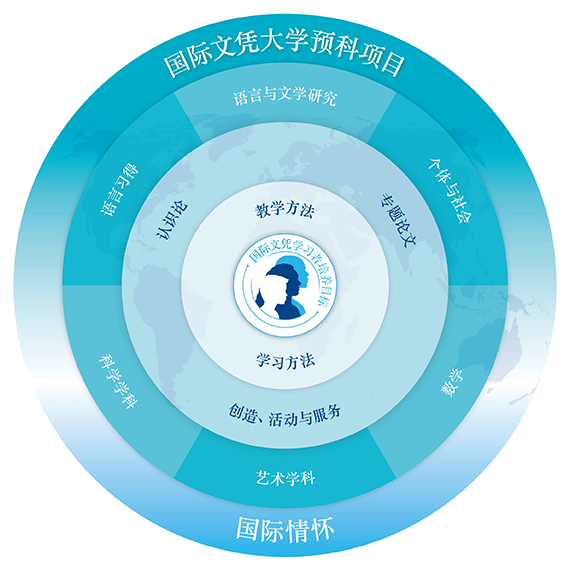
(*学生可以选择修读两门第一组:语言A课程。^学生可以选择修读两门第三组:人文科学或两门第四组:科学课程,代替艺术课程。)
学生需在标准水平(SL)学科中学习三门课程,在高级水平(HL)学科中学习三门课程。SL课程的最低教学时长为150小时,HL课程的最低教学时长为240小时。所有课程在项目第二年的5月结束时进行外部考试。
- 认识论(TOK)
- 扩展论文(EE),一篇4000字的研究论文
- 创造、行动与服务(CAS)
在SGA,我们为学生提供丰富的课程选择,满足学生的成长需求以及大学申请。我们的课程设置如下:
第一组
- 中文语言文学(SL)
- 英语语言文学(SL/HL)(2024-2025年起)
语言A:语言与文学课程(中文及英文)旨在研究语言复杂且动态的本质,探索其实用性和审美性。课程将探讨语言在沟通、反映经验和塑造世界中的关键作用,以及个体作为语言生产者的作用。在课程中,学生将研究语言选择、文本类型、文学形式和语境元素如何影响意义。(来源:IBO,2023)
第二组
- 英语语言B(HL)
- 中文语言B(SL)(2024-2025年起)
语言习得课程旨在为学生提供必要的技能和跨文化理解,使他们能够在目标语言的环境中成功沟通。
语言B课程是为有一定目标语言基础的学生设计的语言习得课程。学生通过学习语言、主题和文本,进一步发展沟通能力。(来源:IBO,2023)
第三组
- 经济学(SL/HL) IBDP经济学课程的目标是使学生能够:
- 在微观经济学、宏观经济学和全球经济领域,批判性地理解一系列经济理论、模型、思想和工具;
- 应用经济理论、模型、思想和工具,分析经济数据,理解并参与个体和社会面临的现实经济问题;
- 理解个体和社会的经济选择、互动、挑战以及经济决策的后果。(来源:IBO,2023)
- 地理(SL/HL) 地理课程的目标是使学生能够:
- 在不同尺度上理解人、地、空间和环境之间的动态关系;
- 发展批判性意识,结合复杂性思维,探讨地理问题的关联性,包括:
- 深入理解地理问题(或棘手问题)是如何被强大的人类和自然过程塑造的;
- 综合多样的地理知识,形成对这些问题可能解决方案的观点;
- 理解并评估通过资源管理实现规划和可持续发展的必要性。(来源:IBO,2023)
- 历史(SL/HL)(2024-2025年起) IBDP历史课程的目标是使学生能够:
- 理解并持续对历史保持兴趣;
- 鼓励学生从多重视角出发,欣赏历史概念、问题、事件和发展的复杂性;
- 通过从世界不同地区的历史研究,培养国际视野;
- 理解历史作为一门学科,发展历史意识,包括对时间顺序和背景的理解,以及不同历史视角的认识;
- 发展关键的历史技能,包括有效利用史料;
- 通过反思过去,增强学生对自身和当代社会的理解。(来源:IBO,2023)
第四组
- 物理(SL/HL)
- 化学(SL/HL)
- 生物学(SL/HL)
- 计算机科学(SL/HL)
- 识别问题或未解决的问题;
- 设计、原型开发和测试提出的解决方案;
- 需求沟通,评估解决方案的成功与否,并对未来的发展提出建议。(来源:IBO,2023)
物理是最基础的实验科学之一,它试图解释宇宙本身,从最小的粒子到星系之间的巨大距离。尽管物理学的历史中充满了激动人心和非凡的理论发展,但观察仍然是该学科的核心。人类发展出不同的模型以尝试理解观察结果,这些模型本身也可能发展为解释观察结果的理论。
除了帮助我们更好地理解自然世界外,物理学还赋予我们改变环境的能力。这引出了物理学对社会的影响、道德和伦理困境,以及物理学家工作对社会、经济和环境的影响等议题。
通过学习物理,学生应该了解科学家如何工作以及他们如何相互交流。尽管科学方法可能有多种形式,但通过实验工作强调实践方法是该学科的特征。教师为学生提供机会,发展操作技能,设计调查,收集数据,分析结果,并评估和交流他们的发现。(来源:IBO,2023)
作为IBDP中的三门自然科学之一,化学主要关注识别模式,以解释微观层面的物质。这使得物质在宏观层面的行为可以被预测和控制。因此,该学科强调发展代表模型和解释理论,两者都依赖于创造性和理性的思维。
DP化学使学生能够积极参与当代科学问题。学生在现实世界背景下审视科学知识主张,激发兴趣和好奇心。通过探索该学科,学生发展了可以在学习和生活中应用的理解、技能和技术。(来源:IBO,2023)
IBDP生物学主要研究生命和生物系统。生物学家通过多种方法和技术、受控实验和科学家之间的合作来理解世界。在反思全球人类活动及其对我们周围世界的影响时,发展和传达对生物世界的清晰理解比以往任何时候都更为重要。
通过学习DP生物学,学生通过统一的主题理解生物系统。通过提供机会让学生探索概念框架,他们能够更好地理解并意识到周围的生物世界。这种理解进一步扩展到不同生物组织水平的相互作用研究,从分子和细胞到生态系统和生物圈。科学探究是DP生物学课程学生体验的核心,通过实验工作,教师为学生提供提问、设计实验、收集和分析数据、与同伴合作以及反思、评估和交流发现的机会。
DP生物学使学生能够积极参与当代科学问题。学生在现实世界背景下审视科学知识主张,激发兴趣和好奇心。通过探索该学科,学生发展了可以在学习和生活中应用的理解、技能和技术。(来源:IBO,2023)
IBDP计算机科学课程要求学生理解计算思维的基本概念以及计算机和其他数字设备的运行原理。该课程以概念性思维为基础,涵盖广泛的知识领域,促进创新、探索和进一步知识的获取。学生研究计算机科学如何与文化、社会相互作用并影响个体和社会行为,以及涉及的伦理问题。在课程中,学生将开发计算解决方案,包括:
第五组
- 数学分析与方法(SL/HL)
- 数学应用与解释(SL/HL)
IBDP数学:分析与方法课程认识到在创新日益依赖对数学深入理解的世界中,对分析专业知识的需求。该课程通过平衡的方法,以一种易于理解、连贯且严谨的方式发展重要的数学概念。
我们鼓励学生将数学知识应用于解决抽象问题以及实际问题的过程中。课程强调构建、交流和论证正确数学论点的能力。学生应期望发展对数学形式和结构的洞察力,并能够欣赏不同主题领域之间的联系。
我们也鼓励学生发展在其他学习环境中继续数学成长所需的技能。内部评估的探索让学生在数学学习中发展独立性。在整个课程中,学生被鼓励以深思熟虑的方式参与各种数学活动,并探索不同的数学思想。(来源:IBO,2023)
IBDP数学:应用与解释课程认识到数学和技术在数据丰富的世界中日益重要的作用,强调通过关注常用于应用或数学建模的主题,来理解数学在背景中的意义。
为了巩固这种理解,该课程包括传统上属于大学预科数学课程的主题,如微积分和统计学。我们鼓励学生解决现实世界问题,以数学方式构建和交流这些问题,并解释结论或推广。
我们期望学生发展扎实的数学技能,并能够欣赏数学理论与实践概念之间的联系。所有外部评估都涉及技术的使用。学生还被鼓励发展在其他学习环境中继续数学成长所需的技能。
内部评估的探索让学生在数学学习中发展独立性。在整个课程中,学生被鼓励以深思熟虑的方式参与各种数学活动,并探索不同的数学思想。(来源:IBO,2023)
第六组
- 视觉艺术(HL)
- 音乐(HL)(2024-2025年起)
IBDP视觉艺术课程鼓励学生挑战自己的创意和文化期望与边界。这是一个发人深省的课程,学生在解决问题和发散性思维中发展分析技能,同时朝着艺术创作的技术熟练度和自信心发展。
除了从不同视角和不同背景探索和比较视觉艺术外,我们也期望学生参与、实验并批判性反思广泛多样的当代实践和媒介。
该课程旨在为希望在高等教育中继续学习视觉艺术的学生以及希望通过视觉艺术丰富一生的学生设计。视觉艺术教师将积极并仔细地为学生组织学习体验,指导他们的学习,使他们达到潜力并满足课程要求。在学习过程中,学生应被赋予成为自主、有知识和熟练的视觉艺术家的能力。(来源:IBO,2023)
IBDP音乐课程旨在为21世纪的音乐学生提供一个认识全球音乐文化和产业迅速变化的世界的机会。该课程基于音乐学习的知识、技能和过程,并通过实践、知情和有目的的探索多样化音乐形式、实践和背景,加强学生创造力的方法。该课程还确保了学习的整体性,表演者、创作者和研究者的角色在所有课程组成部分中被赋予同等重要性。(来源:IBO,2023)
我们的DP协调员
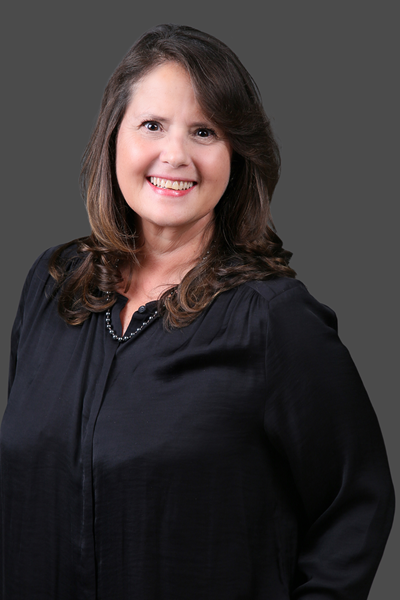
Andréa Bozzetti老师拥有超过十年的IB教育经验,她对学术卓越充满热情。她曾在DP和EE协调员、ESOL协调员和课程开发专家等职位上积累了丰富的领导技能以及对IB项目的深刻理解。作为IBEN的考官和工作坊指导者,她积极参与教育工作。她精通英语、西班牙语和葡萄牙语,拥有国际教育硕士学位和高级教育领导证书,并完成了最近的“教学与学习方法”培训。Andréa曾在亚洲多所学校的IB项目中担任DP协调员,她曾在多个国家生活,她期待继续与IB合作,协调DP项目。
我们的大学升学指导顾问
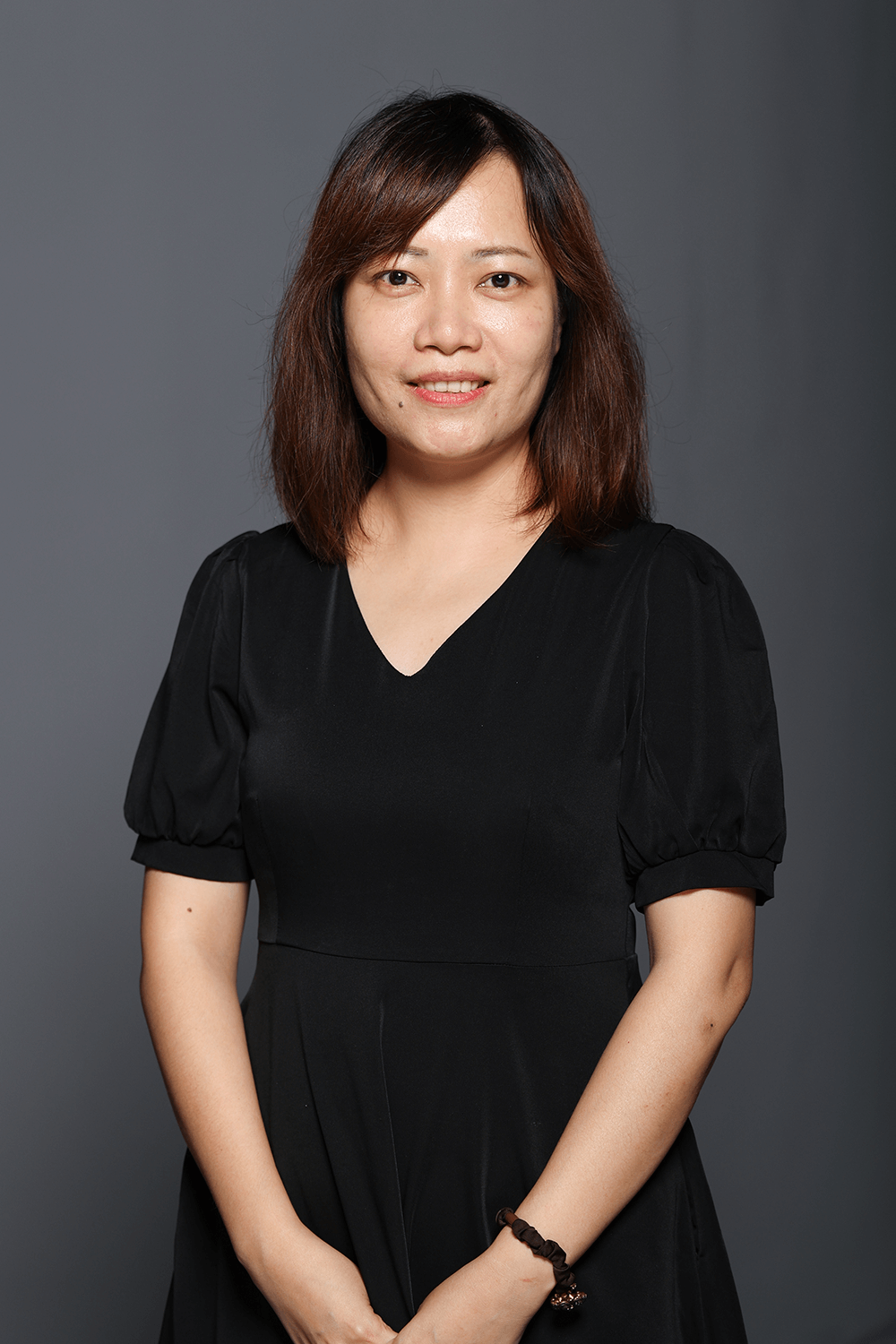
Jean Zhou老师拥有英国伯明翰大学的硕士学位。自2011年以来,她一直致力于大学申请咨询。在深圳的顶尖国际高中担任升学指导顾问期间,Jean积累了丰富的大学申请知识,并帮助数百名学生实现了在海外顶尖大学学习的梦想。引导学生发现自身独特优势并找到最适合他们的大学一直是Jean的灵感和动力来源。她的努力取得了显著成果,学生们成功被芝加哥大学、莱斯大学、西北大学、约翰·霍普金斯大学、卡内基梅隆大学、南加州大学、加州大学伯克利分校、伦敦帝国理工学院等全球著名大学录取。
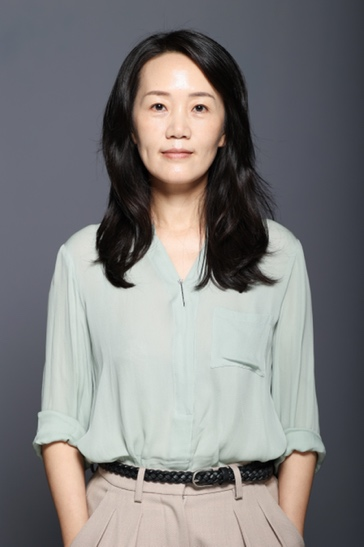
Xuejie Wang老师来自中国重庆。她拥有四川外国语大学的文学学士学位,以及中国四川大学和美国德克萨斯州南方卫理公会大学的两个硕士学位。Xuejie拥有丰富多样的专业背景。她曾在深圳顶尖国际高中担任教师、EE协调员和大学升学指导顾问。
Xuejie于2017年开始担任大学升学指导顾问,并获得了加州大学圣地亚哥分校的大学升学指导证书。
Xuejie致力于通过大学申请过程帮助学生发现人生目标并过上充实的生活。她在教育和咨询方面的经验使她能够很好地支持学生实现学术和个人目标。
Diploma Programme (G11-12)
The IB Diploma Programme at SGA
The IB Diploma Programme (DP) is a broad and rigorous course of study for students ages 16-19 that prepares graduates for success at college and universities abroad, and beyond in careers and life. Indeed, the IB Diploma is recognized by more colleges and universities around the world than any other secondary school course of study, giving families more options in more locations around the world. The ensures we help each student find their best fit university and career pathways for life after SGA.
For two years in grades 11-12, IB DP candidates study six courses across five or six subject groups and engage in the IB DP Core.
- Group 1: Language A
- Group 2: Language B*
- Group 3: Humanities
- Group 4: Sciences
- Group 5: Math
- Group 6: Arts^
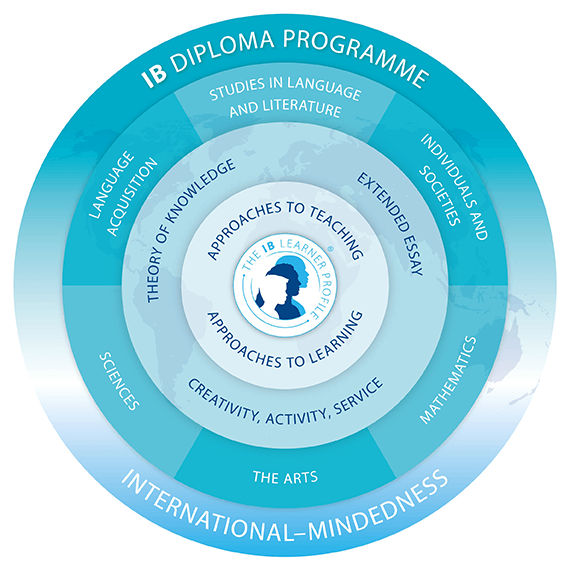
(*Students have the option of taking two Group 1: Language A courses.) (^Students have the option of taking two Group 3: Humanities or two Group 4: Sciences courses in lieu of an arts course.)
Students study three courses at Standard Level (SL) and three courses at Higher Level (HL). SL courses have a minimum of 150 instructional hours over the course of the programme. HL courses have a minimum of 240 instructional hours over the course of the programme. All courses culminate in an external examination in May at the end of the second year of the programme.
- Theory of Knowledge (TOK)
- Extended Essay (EE), a 4,000 word research paper
- Creativity, Activity, and Service (CAS)
At SGA, we are proud to offer a variety of course options in each subject group dependent on student needs, college pathways, and SGA’s resources. Our offerings include:
Group 1
- Chinese Language and Literature (SL)
- English Language and Literature (SL/HL) (from 2024-2025)
The language A: Language and Literature course, whether in Chinese or English, aims at studying the complex and dynamic nature of language and exploring both its practical and aesthetic dimensions. The course will explore the crucial role language plays in communication, reflecting experience and shaping the world, and the roles of individuals themselves as producers of language. Throughout the course, students will explore the various ways in which language choices, text types, literary forms and contextual elements all effect meaning. (IBO, 2023)
Group 2
- English Language B (HL)
- Chinese Language B (SL) (from 2024-2025)
Language acquisition courses are designed to provide students with the necessary skills and intercultural understanding to enable them to communicate successfully in an environment where the language studied is spoken.
Language B is a language acquisition course designed for students with some previous experience of the target language. Students further develop their ability to communicate through the study of language, themes and texts. (from IBO, 2023)
Group 3
- Economics (SL/HL) The aims of the DP economics course are to enable students to:
- develop a critical understanding of a range of economic theories, models, ideas and tools in the areas of microeconomics, macroeconomics and the global economy
- apply economic theories, models, ideas and tools, and analyze economic data to understand and engage with real-world economic issues and problems facing individuals and societies
- develop a conceptual understanding of individuals’ and societies’ economic choices, interactions, challenges and consequences of economic decision-making. (from IBO, 2023)
- Geography (SL/HL) The aims of the geography course at SL and HL are to enable students to:
- develop an understanding of the dynamic interrelationships between people, places, spaces and the environment at different scales
- develop a critical awareness and consider complexity thinking in the context of the nexus of geographic issues, including:
- oacquiring an in-depth understanding of how geographic issues, or wicked problems, have been shaped by powerful human and physical processes
- synthesizing diverse geographic knowledge in order to form viewpoints about how these issues could be resolved.
- understand and evaluate the need for planning and sustainable development through the management of resources at varying scales. (from IBO, 2023)
- History (SL/HL) (from 2024-2025) The aims of the DP history course are to enable students to:
- develop an understanding of, and continuing interest in, the past
- encourage students to engage with multiple perspectives and to appreciate the complex nature of historical concepts, issues, events and developments
- promote international-mindedness through the study of history from more than one region of the world
- develop an understanding of history as a discipline and to develop historical consciousness including a sense of chronology and context, and an understanding of different historical perspectives
- develop key historical skills, including engaging effectively with sources
- increase students’ understanding of themselves and of contemporary society by encouraging reflection on the past. (from IBO, 2023)
Group 4
- Physics (SL/HL)
- Chemistry (SL/HL)
- Biology (SL/HL)
- Computer Science (SL/HL)
- identify a problem or unanswered question
- design, prototype and test a proposed solution
- liaise with clients to evaluate the success of the proposed solution and make recommendations for future developments.
Physics is the most fundamental of the experimental sciences, as it seeks to explain the universe itself, from the very smallest particles to the vast distances between galaxies. Despite the exciting and extraordinary development of ideas throughout the history of physics, observations remain essential to the very core of the subject. Models are developed to try to understand observations, and these themselves can become theories that attempt to explain the observations.
Besides helping us better understand the natural world, physics gives us the ability to alter our environments. This raises the issue of the impact of physics on society, the moral and ethical dilemmas, and the social, economic and environmental implications of the work of physicists.
By studying physics students should become aware of how scientists work and communicate with each other. While the scientific method may take on a wide variety of forms, it is the emphasis on a practical approach through experimental work that characterizes the subject. Teachers provide students with opportunities to develop manipulative skills, design investigations, collect data, analyze results and evaluate and communicate their findings. (from IBO, 2023)
As one of the three natural sciences in the IB Diploma Programme, chemistry is primarily concerned with identifying patterns that help to explain matter at the microscopic level. This then allows matter’s behavior to be predicted and controlled at a macroscopic level. The subject therefore emphasizes the development of representative models and explanatory theories, both of which rely heavily on creative but rational thinking.
DP chemistry enables students to constructively engage with topical scientific issues. Students examine scientific knowledge claims in a real-world context, fostering interest and curiosity. By exploring the subject, they develop understandings, skills and techniques which can be applied across their studies and beyond.
Integral to the student experience of the DP chemistry course is the learning that takes place through scientific inquiry both in the classroom and the laboratory. (from IBO, 2023)
IB DP Biology is primarily concerned with the study of life and living systems. Biologists attempt to make sense of the world through a variety of approaches and techniques, controlled experimentation and collaboration between scientists. At a time of global introspection on human activities and their impact on the world around us, developing and communicating a clear understanding of the living world has never been of greater importance than it is today.
Through the study of DP biology, students are empowered to make sense of living systems through unifying themes. By providing opportunities for students to explore conceptual frameworks, they are better able to develop understanding and awareness of the living world around them. This is carried further through a study of interactions at different levels of biological organization, from molecules and cells to ecosystems and the biosphere. Integral to the student experience of the DP biology course is the learning that takes place through scientific inquiry. With an emphasis on experimental work, teachers provide students with opportunities to ask questions, design experiments, collect and analyze data, collaborate with peers, and reflect, evaluate and communicate their findings.
DP biology enables students to constructively engage with topical scientific issues. Students examine scientific knowledge claims in a real-world context, fostering interest and curiosity. By exploring the subject, they develop understandings, skills and techniques which can be applied across their studies and beyond. (from IBO, 2023)
The IB DP computer science course requires an understanding of the fundamental concepts of computational thinking as well as knowledge of how computers and other digital devices operate. The course, underpinned by conceptual thinking, draws on a wide spectrum of knowledge, and enables and empowers innovation, exploration and the acquisition of further knowledge. Students study how computer science interacts with and influences cultures, society and how individuals and societies behave, and the ethical issues involved. During the course the student will develop computational solutions. This will involve the ability to:
Group 5
- Math Analysis and Approaches (SL/HL)
- Math Applications and Interpretations (SL/HL)
The IB DP Mathematics: analysis and approaches course recognizes the need for analytical expertise in a world where innovation is increasingly dependent on a deep understanding of mathematics. The focus is on developing important mathematical concepts in a comprehensible, coherent and rigorous way, achieved by a carefully balanced approach.
Students are encouraged to apply their mathematical knowledge to solve abstract problems as well as those set in a variety of meaningful contexts. Mathematics: analysis and approaches has a strong emphasis on the ability to construct, communicate and justify correct mathematical arguments. Students should expect to develop insight into mathematical form and structure, and should be intellectually equipped to appreciate the links between concepts in different topic areas.
Students are also encouraged to develop the skills needed to continue their mathematical growth in other learning environments. The internally assessed exploration allows students to develop independence in mathematical learning. Throughout the course students are encouraged to take a considered approach to various mathematical activities and to explore different mathematical ideas. (from IBO, 2023)
The IB DP Mathematics: applications and interpretation course recognizes the increasing role that mathematics and technology play in a diverse range of fields in a data-rich world. As such, it emphasizes the meaning of mathematics in context by focusing on topics that are often used as applications or in mathematical modelling.
To give this understanding a firm base, this course includes topics that are traditionally part of a pre-university mathematics course such as calculus and statistics. Students are encouraged to solve real-world problems, construct and communicate this mathematically and interpret the conclusions or generalizations.
Students should expect to develop strong technology skills, and will be intellectually equipped to appreciate the links between the theoretical and the practical concepts in mathematics. All external assessments involve the use of technology. Students are also encouraged to develop the skills needed to continue their mathematical growth in other learning environments.
The internally assessed exploration allows students to develop independence in mathematical learning. Throughout the course students are encouraged to take a considered approach to various mathematical activities and to explore different mathematical ideas. (from IBO, 2023)
Group 6
- Visual Arts (HL)
- Music (HL) (from 2024-2025)
The IB Diploma Programme visual arts course encourages students to challenge their own creative and cultural expectations and boundaries. It is a thought-provoking course in which students develop analytical skills in problem-solving and divergent thinking, while working towards technical proficiency and confidence as art-makers.
In addition to exploring and comparing visual arts from different perspectives and in different contexts, students are expected to engage in, experiment with and critically reflect upon a wide range of contemporary practices and media.
The course is designed for students who want to go on to further study of visual arts in higher education as well as for those who are seeking lifelong enrichment through visual arts. The role of visual arts teachers should be to actively and carefully organize learning experiences for the students, directing their study to enable them to reach their potential and satisfy the demands of the course. Students should be empowered to become autonomous, informed and skilled visual artists. (from IBO, 2023)
The Diploma Programme Music course has been designed to prepare the 21st century music student for a world in which global musical cultures and industries are rapidly changing. The course is grounded in the knowledge, skills and processes associated with the study of music and offers a strengthened approach to student creativity through practical, informed and purposeful explorations of diverse musical forms, practices and contexts. The course also ensures a holistic approach to learning, with the roles of performer, creator and researcher afforded equal importance in all course components. (from IBO, 2023)
Meet our Diploma Programme Coordinator

With over a decade in IB education, Andréa Bozzetti brings a wealth of experience and passion for academic excellence. From roles as DP and EE Coordinator to ESOL Coordinator and curriculum development expert, she has honed leadership skills and a deep understanding of IB programmes. Active engagement with IBEN as an Examiner and workshop facilitator underscores her commitment to education. Fluent in English, Spanish, and Portuguese, Andréa holds a Masters in International Education and a Certificate in Advanced Education Leadership, complemented by recent training in Teaching and Learning Approaches. Having served as a DP Coordinator in schools across Asia, and having lived in various countries Andréa is eager to continue working with the IB coordinating the Diploma programme.
Meet our College Counselors

Jean Zhou holds a master’s degree from the University of Birmingham, UK. She has been dedicated to college application counseling since 2011. With experiences counseling students at the Academy of International Programs of Shenzhen Foreign Languages School as well as Shenzhen International Foundation College, Jean has developed a profound knowledge in college applications and assisted hundreds of students in achieving their dreams of studying at prestigious overseas universities. Guiding students through the process of discovering their unique strengths and finding their best college fit have always been a source of inspiration and motivation for Jean. Jean’s efforts have yielded remarkable results, with students successfully admitted to institutions like the University of Chicago, Rice University, Northwestern University, Johns Hopkins Univeristy, Carnegie Mellon University, University of Southern California, UCBerkeley, Imperial College London and many other famous universities around the world.

Xuejie Wang is originally from Chongqing, China. She holds a Bachelor of Arts degree from Sichuan International Studies University and two Master's degrees from Sichuan University in Sichuan, China, and Southern Methodist University in Texas, United States respectively.
Xuejie has a diverse professional background. She has worked at Shenzhen Foreign Language School (Yantian campus) as an English teacher and at Shen Wai International School in various roles such as a teacher, EE coordinator, and college counselor. Xuejie transitioned to working as a college counselor in 2017 and has received a certificate of college counseling from the University of California in San Diego.
Xuejie is passionate about helping students discover their life purpose and lead fulfilling lives by guiding them through the college application process. Her experience in education and counseling positions her well to support students in achieving their academic and personal goals.